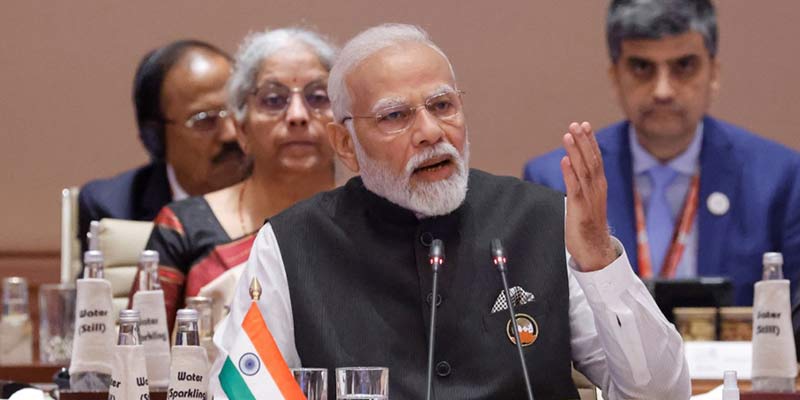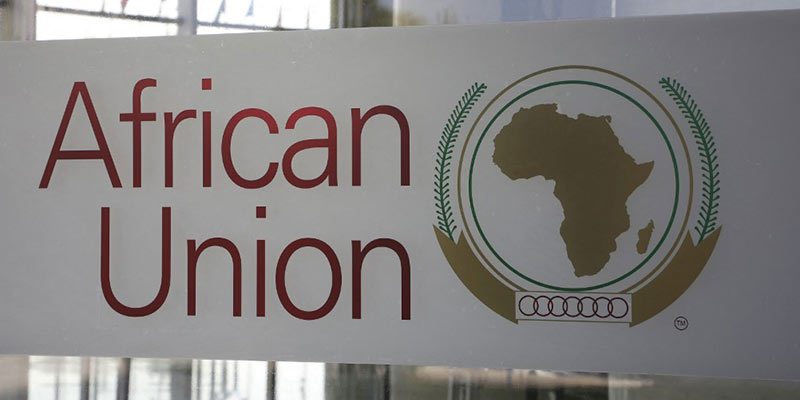- India
- Sep 09
G20 admits African Union as permanent member
Prime Minister Narendra Modi announced the inclusion of the African Union as a permanent member of the G20 during the New Delhi Summit on September 9.
Minister of External Affairs S.Jaishankar escorted Azali Assoumani, Union of Comoros President and chairperson of the African Union, to take his seat at the G20 high table.
In June, PM Modi had written to the leaders of the G20 nations proposing that the African Union be given full membership of the grouping.
What is G20?
• The G20 or Group of 20 is an inter-governmental forum of the world’s major developed and developing economies.
• It is the international forum that brings together the world’s major economies.
• The members of G20 are Argentina, Australia, Brazil, Canada, China, France, Germany, India, Indonesia, Italy, Japan, Mexico, South Korea, Russia, South Africa, Saudi Arabia, Turkey, the UK, the US and the European Union (EU).
• Its members account for more than 85 per cent of world GDP, 75 per cent of global trade and about two-thirds of the world population.
• India has been a member of the G20 since its inception in 1999.
• India formally assumed the G20 presidency on December 1, 2022.
African Union
• The African Union is a continental body consisting of 55 member states that make up the countries of the African Continent.
• It was officially launched in 2002 as a successor to the Organisation of African Unity (OAU).
• On May 25, 1963 in Addis Ababa, Ethiopia, the 32 African states that had achieved independence at that time agreed to establish the Organisation of African Unity (OAU).
• A further 21 members joined gradually, reaching a total of 53 by the time of the African Union’s launch in 2002. In 2011, South Sudan became the 54th Member State, and in 2017, Morocco became the 55th Member State.
• The OAU was the manifestation of the pan-African vision for an Africa that was united, free and in control of its own destiny and this was solemnised in the OAU Charter.
• Through the 1990s, leaders debated the need to amend the OAU’s structures to reflect the challenges of a changing world.
• In 1999, the OAU heads of State and government issued the Sirte Declaration calling for the establishment of a new African Union.
• The vision for the Union was to build on the OAU’s work by establishing a body that could accelerate the process of integration in Africa, support the empowerment of African states in the global economy and address the multifaceted social, economic and political problems facing the continent. In total, four summits were held in the lead up to the official launching of the African Union.
• The African Union was officially launched in July 2002 during Durban Summit.
• A significant number of OAU structures were carried forward into the African Union. Similarly, many of the OAU’s core commitments, decisions and strategy frameworks continue to frame AU policies.
• The decision to re-launch Africa’s pan-African organisation was the outcome of a consensus by African leaders that in order to realise Africa’s potential, there was a need to refocus attention from the fight for decolonisation and ridding the continent of apartheid, which had been the focus of the OAU, towards increased cooperation and integration of African states to drive Africa’s growth and economic development.
• The African Union’s headquarters is situated in Addis Ababa, Ethiopia.
Manorama Yearbook app is now available on Google Play Store and iOS App Store



